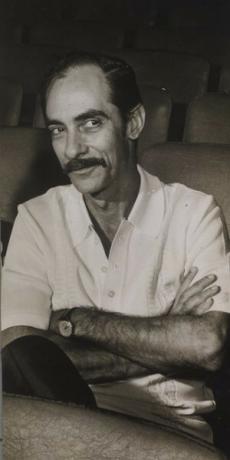Franciscan, chemist, physicist, mathematician, philosopher, theologian and English astrologer, born in Ilchester, Somerset, one of the most talented British thinkers, pioneer of the pursuit of knowledge through experimental practice and known as the Doctor Mirabilis (Admirable doctor). Descendant of a wealthy family, he studied at Oxford, where he was a disciple of Robert Grosseteste, one of the geniuses of the time, and went to Paris, where he became a master of theology, he joined the Franciscan order, with whose authorities he would have constant problems throughout the life. Assuming a critical role and opposing some statements of Aristotelian philosophy, defending the priority role of scientific investigation, accepting the inductive-deductive Aristotelian method and insisting that its success depended on exact and extensive knowledge of the facts, it became the target of persecution and convictions.
He commented, at the University of Paris, on the pseudo-Aristotelian treatise De plantis (On trees), and wrote brilliant remarks on the physics and metaphysics of Aristotle, while delving into the Arab authors who reintroduced the thinkers in Europe Greeks. He wrote a Greek grammar and started another Hebrew. He further proved that several texts of the Bible were adulterated and many translations of Aristotle wrong (1251). He returned to Oxford (1252) under the blessing of the Apostolic Nuncio in England, a friend of his and who supported him. After having taught for some time at Oxford University, he was forced to leave his chair after the death of his protector.
Accused of witchcraft, the general minister of the Franciscans, Saint Bonaventure, placed him under surveillance in Paris and banned publication circulation from his scientific texts, he was condemned by the Franciscan order to remain in prison, where he remained for fourteen years and died in Oxford. His work was based on observations and he believed that science could solve all man's problems. His main works were: Opus majus (1257), the only one completely complete, Opus minus and Opus tertium, which completed should constitute the true encyclopedia of knowledge. He is considered one of the most significant figures in late scholasticism and a forerunner of modern empiricism, as well as the main personality of alchemy in his century.
Do not stop now... There's more after the advertising ;)
An aggressive critic of the greatest authorities of his time, he was of genius and original temperament, encyclopedic and mystic, scientist and superstitious. The audacity and novelty of scientific research earned him the nickname Doctor Mirabilis. He researched fluid mechanics principles, immersed himself in mathematics, languages and notably natural sciences. He proposed reforming the calendar, experimented with optics and force propagation, foresaw the properties of convex lenses, which could turn into telescope or microscope, the practical consequences of the use of gunpowder, mechanically propelled ships and the possibility of flying devices heavier than the air. It also dealt with the problems of a circumnavigation trip.
(Picture copied from the TURNBULL WWW SERVER website:
http://www-history.mcs.st-andrews.ac.uk/)
Source: Biographies - Academic Unit of Civil Engineering / UFCG
Order R - Biography - Brazil School
Would you like to reference this text in a school or academic work? Look:
PERCILIA, Eliene. "Roger Bacon"; Brazil School. Available in: https://brasilescola.uol.com.br/biografia/roger-bacon.htm. Accessed on June 29, 2021.


